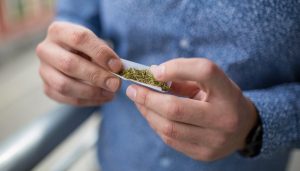Illinois sees record increase in tax revenue from cannabis sales
Chronicle Media — July 25, 2022
Gov. J.B. Pritzker reported the state of Illinois has seen a 50 percent increase in total tax reported from adult-use cannabis, from $297.7 million in fiscal year 2021 to $445.3 million in fiscal year 2022.
Total adult-use cannabis sales also rose 50 percent, increasing from $1 billion to $1.5 billion, respectively.
Cannabis tax disbursements to local governments saw a significant jump from fiscal year 2021 to fiscal year 2022, increasing 77 percent from $82.8 million to $146.2 million.
Under Illinois’ adult-use cannabis law, 25 percent of tax revenue generated from cannabis sales must support communities that are economically distressed, experience high rates of violence, and have been disproportionately impacted by drug criminalization.
“Legalizing cannabis for adults has been a wise investment for the Illinois economy and sales have continued to rise, leading to additional revenue for the state,” said Senate Majority Leader Kimberly A. Lightford. “Consistent cash-flow from the cannabis industry assists the state with funding essential services such as violence prevention, mental health, and local government.”
To date, the state has awarded $113.5 million in grants, using funds generated from taxes on adult-use cannabis sales to support and invest underserved communities through Illinois Criminal Justice Information Authority’s Restore, Reinvest, and Renew (R3) Program. Created by Illinois’ historic cannabis legalization law, the R3 Program is designed to help communities with issues of gun violence, child poverty, unemployment, and imprisonment by providing funding from the taxes of adult-use cannabis sales.
“The cannabis industry continues to have a positive impact in Illinois,” said Illinois Department of Revenue (IDOR) Director David Harris. “It has created hundreds of jobs at cultivation centers and dispensaries throughout the state, and tax revenue generated continues to flow to local governments, help with drug programs and treatments, and is also being reinvested back into the communities that need it the most.”







